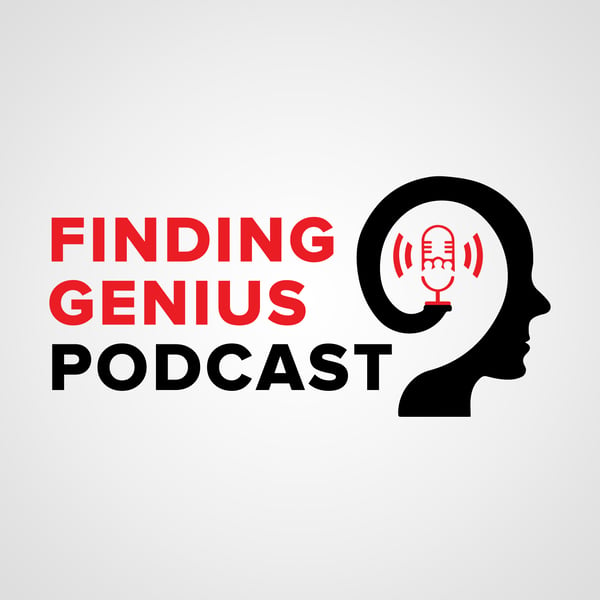Primary Brain Tumors Cell-by-Cell with Dr. Sunit Das
Finding Genius Podcast
Richard Jacobs
4.4 • 1K Ratings
🗓️ 24 March 2021
⏱️ 19 minutes
🧾️ Download transcript
Summary
While considered rare in the general population of cancers, glioblastoma is the most common primary cancer found in adults. That "primary" designation is important and Dr. Sunit Das explains why and how he works as a clinician and researcher to get some traction on fighting brain cancer.
Listen and learn
- What common treatments exist, including chemo and radiotherapy for brain tumors,
- What genetic mechanisms of disease and even the role of epigenetics seem to play in the heterogeneous findings from biopsies,
- How glioblastoma progresses biologically, inducing brain tissue damage and cancer cell growth outside of the tumor mass, and
- Why while the struggle to make progress on treating this disease continues, hope may lie in identifying patterns in the heterogeneity.
Sunit Das is an associate professor in the Department of Surgery at the University of Toronto. His clinical work centers on removing tumors from the brain and his researcher focuses on the biology of brain stem cells, comparing normal and cancerous. Because brain surgery for cancer is usually far from curative, he's developed a keen interest in researching brain tissue function and how to make strides in treatment.
He discusses how the clinical and scientific sides of his work inform each other, from following a patient through surgery and brain cancer chemo to understanding how biopsies from multiple parts of a tumor translate to a challenging heterogeneity. He comments, "we can put the things that we learned from watching cells and the way they behave into the greater context of thinking of a tumor and how that manifests in the patient experience."
He answers numerous questions, including how brain tumors grow, if there's a clear difference between tumor and normal brain tissue, and whether tumor cells are simply transformed normal cells. The final image he presents helps listeners understand the nature of this disease and what scientists hope to learn to find better treatments.
For more about his work and for contact information, see his web page at the University of Toronto.
Episode also available on Apple Podcasts: apple.co/30PvU9C
Transcript
Click on a timestamp to play from that location
| 0:00.0 | Forget frequently asked questions. |
| 0:02.0 | Common sense, common knowledge, or Google. |
| 0:05.0 | How about advice from a real genius? |
| 0:07.0 | 95% of people in any profession are good enough to be qualified in license. |
| 0:11.0 | 5%? |
| 0:12.0 | Go above and beyond. |
| 0:13.0 | They become very good at what they do. |
| 0:15.0 | But only 0.1% are real geniuses. |
| 0:18.0 | Richard Jacobs has made his life's mission to find them for you. |
| 0:22.0 | He hunts down and interviews geniuses in every field. |
| 0:25.0 | Sleep science, cancer, stem cells, ketogenic diets, and more. |
| 0:28.0 | Here come the geniuses. |
| 0:30.0 | This is the Finding Genius Podcast. |
| 0:33.0 | The Richard Jacobs. |
| 0:38.0 | Quick note before we begin. |
| 0:39.0 | The Finding Genius Foundation, as part of the Finding Genius Podcast, |
| 0:42.0 | has recently completed a book about understanding viruses. |
| 0:46.0 | So the creation of this book was to interview 100 virologists, |
| 0:50.0 | ask them a lot of deep difficult questions, take the most difficult questions, |
| 0:54.0 | and then re-interview the top 25 or so, |
| 0:57.0 | and ask them the hardest questions I could think of. |
| 1:00.0 | And we compile that all into a book. |
... |
Please login to see the full transcript.
Disclaimer: The podcast and artwork embedded on this page are from Richard Jacobs, and are the property of its owner and not affiliated with or endorsed by Tapesearch.
Generated transcripts are the property of Richard Jacobs and are distributed freely under the Fair Use doctrine. Transcripts generated by Tapesearch are not guaranteed to be accurate.
Copyright © Tapesearch 2025.

